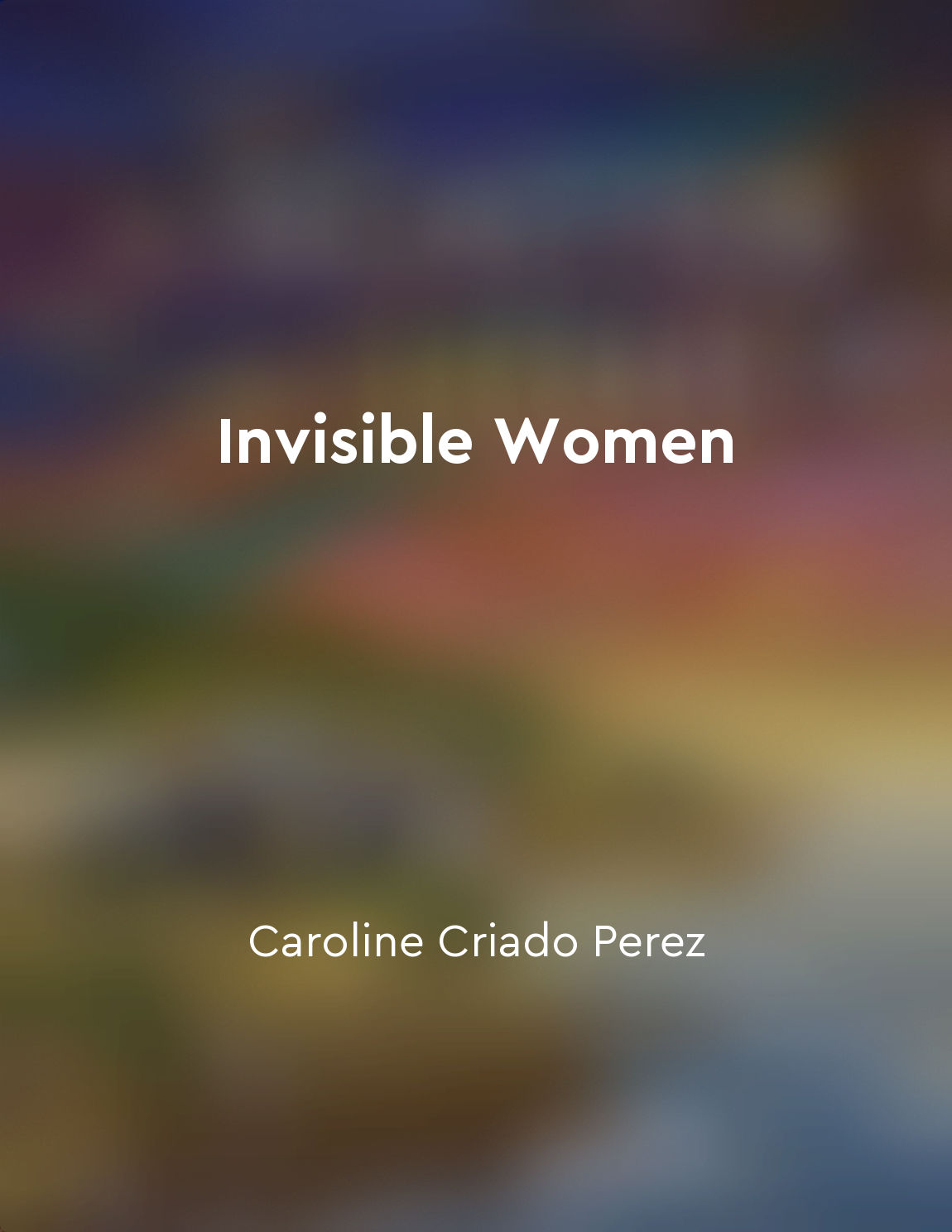Gender data bias impacts women's access to education from "summary" of Invisible Women by Caroline Criado Perez
The data we collect shapes the world we live in. But what happens when that data is biased, when it fails to capture the full range of human experience? In the case of education, gender data bias has a profound impact on women's access to learning opportunities. When policymakers make decisions about educational resources, they rely on data to guide their choices. But if that data primarily reflects the experiences of men, then women's needs and challenges may be overlooked. This oversight can have serious consequences for women and girls, limiting their access to quality education and the opportunities it brings. One example of gender data bias in education is the way we measure attendance. In many developing countries, girls are responsible for household chores like fetching water and caring for siblings. As a result, they may miss school more often than boys. However, traditional attendance records often fail to account for these responsibilities, painting an inaccurate picture of girls' educational engagement. Another way gender data bias impacts women's access to education is through the allocation of resources. If policymakers believe that girls attend school less frequently than boys, they may invest fewer resources in girls' education. This creates a self-perpetuating cycle of disadvantage, where girls receive fewer opportunities to learn and develop their potential. Furthermore, gender data bias can also influence the curriculum itself. Textbooks and teaching materials often reflect the experiences and perspectives of men, reinforcing gender stereotypes and limiting girls' aspirations. When girls see themselves underrepresented in educational materials, they may be less likely to engage with their studies and pursue higher education. In order to address this issue, we must first acknowledge the existence of gender data bias in education. By collecting more accurate and comprehensive data on attendance, performance, and resource allocation, we can better understand the barriers that women and girls face in accessing education. Only then can we create policies and programs that level the playing field and ensure that all individuals have equal opportunities to learn and thrive.Similar Posts
The fight for gender equality is ongoing
The struggle for gender equality is an enduring one. It is a battle that has been fought for centuries, and one that continues ...
Teachers have the power to create transformative educational experiences
Teachers play a crucial role in the educational system. They are not merely conduits of information, but rather, they have the ...
The industrial revolution revolutionized work
The industrial revolution was a seismic shift in the way work was done. It transformed societies, economies, and the very natur...
Women should have the freedom to make choices
Women, like men, are rational beings capable of making decisions for themselves. They should not be confined to the limited rol...
Teach girls to value their own opinions
Teach girls to value their own opinions. Encourage them to speak up, to express themselves confidently, and to trust their own ...
Feminism is a movement for justice
Feminism is a movement for justice because it advocates for gender equality. It is not about hating men or trying to make women...
Patriarchy limits women's opportunities for selfrealization
The patriarchal system in which we live, with its long history of privileging men over women, has a profound impact on women's ...
Prejudice against women hinders progress
The belief in the inferiority of women is deeply ingrained in society, hindering their ability to progress and reach their full...
Race, class, and education are interconnected social constructs
Race, class, and education are deeply intertwined in our society. These three elements are not separate entities, but rather in...
Children should be encouraged to express themselves authentically
Encouraging children to express themselves authentically is crucial for their emotional development. When children feel free to...

